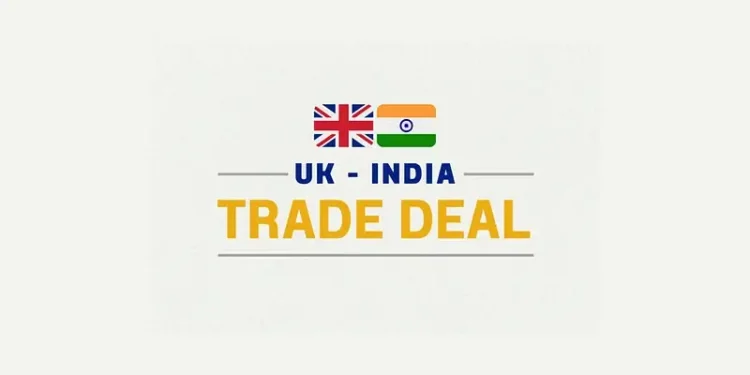The UK and India have finalized a historic trade agreement expected to deliver a £50 million boost to Northern Ireland’s economy.
This deal targets key sectors such as advanced manufacturing and whisky production, significantly reducing tariffs to spur growth.
Details of the UK-India Trade Agreement
The recently signed trade deal between the UK and India marks a significant economic milestone, particularly for Northern Ireland. This agreement, finalized during Indian Prime Minister Narendra Modi’s visit to the UK, is poised to enhance various sectors by reducing or eliminating tariffs.
Key industries such as advanced manufacturing, engineering, and whisky production are set to benefit. The deal also promises growth in the services and technology sectors, providing a broad economic uplift.
Economic Implications for Northern Ireland
The £50 million boost to Northern Ireland’s economy is a focal point of the trade agreement. This financial uplift is expected to revitalize local industries and contribute to job creation and higher profits within the region.
Consumers in Northern Ireland could also see benefits from lower prices on imported goods, including whisky and automotive products, making these sectors more competitive globally.
How the Trade Deal is Reshaping Local Industries and Creating Jobs
The reduction in tariffs is particularly beneficial for Northern Ireland’s whisky producers. Previously subjected to high tariffs, the new trade terms will decrease these costs significantly, from 150% to 75%, eventually dropping to 40% over the next decade.
This tariff reduction not only aids existing businesses but also attracts new investments into the region, potentially leading to job creation and economic stability.
Historical Context and Trade Negotiations
This trade deal comes after three years of intense negotiations, building on the foundations laid by previous UK-India discussions. These discussions have historically aimed to strengthen trade relations and address challenges posed by global market disruptions and Brexit.
The agreement reflects a strategic approach to bilateral benefits, ensuring both nations gain from relaxed trade barriers and improved market access, especially for advanced manufacturing and technology services.
Exciting Economic Gains Emerging from the New Trade Agreement
| Category | Detail |
|---|---|
| Sector Benefit | Advanced manufacturing, whisky production |
| Tariff Reduction | From 150% to 75%, to 40% over 10 years |
| Projected Economic Boost | £50 million to Northern Ireland’s economy |
Reactions from Industry Leaders and Critics
While industry leaders in manufacturing and technology sectors are likely to praise the new market opportunities, critics might raise concerns about potential market saturation and the displacement of jobs in other sectors.
The phased approach to tariff reductions is seen as a balanced way to stimulate the economy while managing the competitive landscape.
Unexpected Economic Connections
An interesting aspect of the trade deal is its specific mention of Northern Ireland’s whisky industry, which is more commonly associated with Scotland. This highlights Northern Ireland’s growing importance in the spirits market and its diversified economic strategies.
This focus on Northern Ireland within the broader UK-India trade strategy underscores the region’s strategic economic importance post-Brexit.
Additional Reading
Sources: GOV.UK, India Briefing, Eastern Eye, Northern Ireland Office, Department for Business and Trade, The Rt Hon Hilary Benn MP and The Rt Hon Jonathan Reynolds MP.
Prepared by Ivan Alexander Golden, Founder of THX News™, an independent news organization delivering timely insights from global official sources. Combines AI-analyzed research with human-edited accuracy and context.





